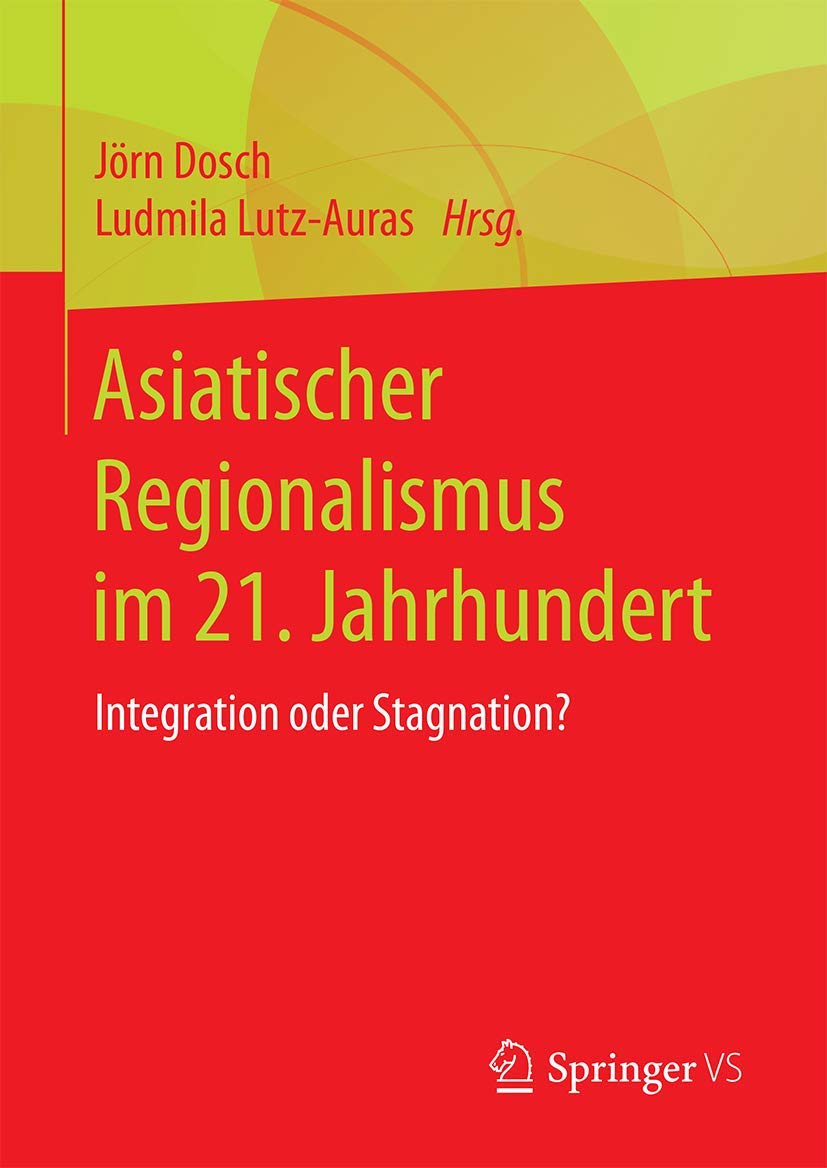Asian Regionalism in the 21st Century – Integration or Stagnation?
Jörn Dosch and Ludmila Lutz-Auras (Ed.), Wiesbaden: Springer VS, 2020, 291 p.
The process of globalisation is proceeding relentlessly, accompanied by de- and transnationalisation of society, economy, politics and culture. The resulting loss of significance of the national state begs the question of which role cross-border cooperation is supposed to and expected to play. This book will analyse and compare the accomplishments and challenges of the most important Asian associations: Association of Southeast Asian Nations (ASEAN), South Asian Association for Regional Cooperation (SAARC), Eurasian Economic Union, Greater Mekong Subregion (GMS) and approaches to creating an East Asian union. Additionally, the role of the European Union in Asia will be evaluated. A characteristic of Asian regionalism is the fact that while it is led by formal processes of institutionalism, informal regulatory systems play an essential role in regionalism as well. Has this approach led to progressive regional integration or can a stagnation of initiative regarding Asian collaboration over the past decades be observed?


